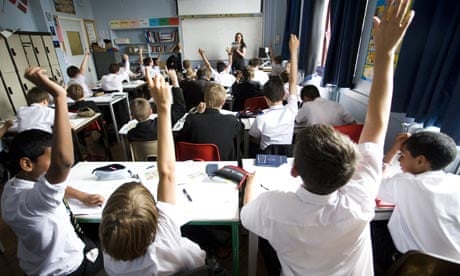Around one in seven children in England missed out on a place at their first preference secondary school this year, official figures show.
Statistics published by the Department for Education reveal that 14.7% of the nearly 504,000 11-year-olds who applied to start secondary school this September did not get into the schools their parents wanted.
This is the equivalent of about 74,000 11-year-olds – 5,000 fewer than last year. The slight improvement is in part due to 1.7% fewer applications, although the number of places has remained the same.
Inner London had the lowest proportion of pupils getting their first choice school – 65.8% - while outer London was marginally higher at 68.4%. The north-east of England had the highest proportion of first preference offers at 95.1%.
In some parts of London, competition was particularly tough. Just 53.5% of 11-year-olds in Wandsworth, south London, got their first preference. In Hammersmith and Fulham, in west London, and Southwark, in central London, the figures were 54.4% and 55.9% respectively.
Families were told at the start of this month whether their child had a place. Across the country, 95.9% were offered a place at one of the three schools they listed as their preferred choices. This is a rise of 0.3 percentage points on last year and continues a rising trend.
The number of secondary school pupils under 16 has been in decline since 2004 and is expected to decrease further until 2016.
Nick Gibb, the schools minister, said parents faced an extremely competitive and stressful process for securing a place for their children. "We want to ease this pressure by creating more good school places, which is the driver behind all our reforms to the education system."
Gibb said the government was allowing the best schools to expand and the growth of academies and free schools meant parents had a wider choice of good schools.

Comments (…)
Sign in or create your Guardian account to join the discussion